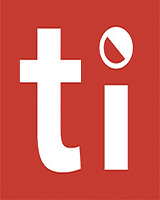This is an open-access article distributed under the terms of the Creative Commons Attribution License, which permits unrestricted use, distribution, and reproduction in any medium, provided the original work is properly cited.
NCBI Bookshelf. A service of the National Library of Medicine, National Institutes of Health.
Perry T, editor. Therapeutics Letter. Vancouver (BC): Therapeutics Initiative; 1994-.
Therapeutics Letter 85 presents selected direct quotes published in recent issues of Prescrire International. Topics covered include aliskiren, drugs for Alzheimer's disease, escitalopram, gabapentin, pregabalin, migraine headaches, and varenicline.
Keywords:
Alzheimer Disease, Aliskiren, Escitalopram, Gabapentin, Migraine Disorders, Pregabalin, Varenicline
Arterial hypertension: don’t expose patients to the adverse effects of aliskiren (Rasilez*) 2
In the absence of proven efficacy based on robust clinical criteria, and given the risk of severe adverse effects, the use of aliskiren to treat arterial hypertension cannot be justified.
NOT ACCEPTABLE
The marketing authorization for aliskiren, an antihypertensive drug, relies on surrogate endpoints, i.e. blood pressure levels, and not on robust clinical outcomes, such as the reduction of cardiovascular events. Its adverse effects profile is no more favourable than that of other antihypertensive drugs with similar action mechanisms (angiotensin-converting enzyme inhibitors (also called ACE inhibitors) and angiotensin II receptor blockers). This profile has become all the more worrying since the interruption, at the end of December 2011, of a clinical trial comparing aliskiren with placebo, following an excessive number of sometimes fatal adverse events, such as cardiovascular disorders and renal failure. Furthermore, this trial did not demonstrate aliskiren’s superiority over placebo.
In practice, given aliskiren’s uncertain harm-benefit balance, it is better not to prescribe it for hypertension, either alone or in combination, but rather to rely on antihypertensives whose efficacy in reducing cardiovascular events has been proven.

Drugs for Alzheimer’s disease: best avoided (Reassessment) 3
No therapeutic advantage.

NOT ACCEPTABLE
The French Pharmacoeconomic Committee that assesses the medical benefit of new drugs and provides recommendations about reimbursement has downgraded its rating of the medical benefit provided by cholinesterase inhibitors (Aricept, Exelon, Reminyl*) and memantine (Ebixa*) in Alzheimer’s disease from “major” to “low”.
Avoiding harm. In early 2012 no treatment slowed the progression of Alzheimer’s disease. Management of these patients is complex and relies mainly on psychosocial support aimed at maintaining independence and improving quality of life for both the patient and his or her caregivers. 4
At best, drugs for Alzheimer’s disease can only help to control behavioural disorders and stabilize or slightly improve cognitive function, in only a minority of patients. 5 It is therefore important not to cause further harm, especially by avoiding potentially serious adverse effects of cholinesterase inhibitors and memantine.
The adverse effects of cholinesterase inhibitors, due mainly to their cholinergic properties, include gastrointestinal disorders (sometimes significant vomiting), as well as neurological, psychiatric and cardiac disorders. 5 The main adverse effects of memantine are neuropsychological disorders, together with antimuscarinic and dopaminergic effects.5
Escitalopram (Cipralex*): torsades de pointes 6
Same problem as with citalopram (Celexa * ).

NOTHING NEW
In late 2011, the British drug regulatory agency (MHRA) warned of a risk of torsades de pointes with escitalopram, a selective serotonin reuptake inhibitor antidepressant (SSRI). 7
These disorders are also known to occur with citalopram8, a racemic mixture of S and R citalopram. 9 Escitalopram, as its international non-proprietary name (INN) implies, is the S-enantiomer of citalopram. Patients taking citalopram are thus also taking escitalopram. Escitalopram has no proven advantages over citalopram in terms of antidepressant efficacy or adverse effects.
Gabapentin (Neurontin*) and pregabalin (Lyrica*): abuse and addiction 10

NOT ACCEPTABLE
In Europe, in mid-2011, about 30 cases of dependence, abuse or withdrawal symptoms attributed to pregabalin had been reported to Swedish and French pharmacovigilance centres and the European Monitoring Centre for Drugs and Drug Addiction (EMCDDA). About 20 cases of gabapentin addiction were published in detail.
The most frequestly reported disorders were withdrawal symptoms. More than half of the patients were hospitalized for withdrawal. Cases of excessive increases in the doses of gabapentin or pregabalin, unauthorized routes of administration, and combination with other substances were also reported.
In practice, it is better to avoid exposing patient to these risks when the expected benefits are not properly documented. Healthcare professionals should take care to prevent and detect addiction to pregabalin or gabapentin. When necessary, assistance with tapering off the medication should be offered.
Migraine attacks: acetaminophen** (Tylenol*) first 11
About half of all patients with acute migraine obtain substantial relief after 2 hours with a single oral dose of acetaminophen 1000 mg.

OFFERS AN ADVANTAGE
A Cochrane Collaboration team reviewed available randomized clinical trials of adults with migraine. They identified 4 clinical trials that compared a single oral dose of acetaminophen 1000 mg versus placebo in a total of 1293 patients. 12 In these trials, no difference in adverse effects was observed between the two groups. 12
In practice. More than one-third of migraine patients obtain relief with placebo. A single dose of acetaminophen 1000 mg is more effective. This treatment alone provides substantial relief in half of all patients, prevents recurrence and has no major adverse effects.
Varenicline (Champix*): aggression and homicidal ideation 13

NOT ACCEPTABLE
Varenicline, a drug used for smoking cessation, carries a risk of neuro-psychological adverse effects, including depression and suicide.
Analysis of a series of detailed reports of aggression and homicidal ideation attributed to varenicline showed that most patients had no psychiatric history. These symptoms were often preceded by sleep disorders. Suicide and suicidal ideation were associated with signs of aggression in nearly one-third of cases. Aggressive symptoms recurred in patients who restarted varenicline. In practice, it is better to avoid using varenicline for smoking cessation and to use nicotine replacement instead when drug therapy is considered necessary.
Footnotes
- *
Canadian Brand names added.
- **
Paracetamol, the generic name for acetaminophen in Europe, was used in the original.
References
- 1.
- Therapeutics Initiative. Clinical Pearls from Prescrire. Therapeutics Letter 2006;60 (Oct–Dec):1–2.
- 2.
- Prescrire Int 2012; 21(129):176. Translated from Rev Prescrire, March 2012; 32(341):183.
- 3.
- Prescrire Int 2012; 21(128):150. Translated from Rev Prescrire, February 2012; 32(340):105.
- 4.
- Prescrire Rédaction “Maladie d’Alzheimer: traitement medicamenteux” Idees-Forces. Prescrire updated May 2011: 5 pages.
- 5.
- Prescrire Rédaction “23–5. Patients ayant une maladie d’Alzheimer”. Rev Prescrire 2011; 31 (338 suppl.interactions medicamenteuses).
- 6.
- Prescrire Int 2012; 21(127):130. Translated from Rev Prescrire, February 2012; 32(340):112.
- 7.
- Medicines and Healthcare products Regulatory Agency. “Citaloprma and escitalopram: QT interval prolongation – new maximum daily dose restrictions (including in elderly patients), contraindications and warnings”. Drug Safety update 2011; 5(5):A1:3 pages.
- 8.
- Prescrire Editorial Staff. “Citalopram: torsades de pointes”. Prescrire Int 2012;21(123):15.
- 9.
- Prescrire Editorial Staff. “Marketing isomers: an optical illusion”. Prescrire Int 2009; 18(99):36–37.
- 10.
- Prescrire Int 2012; 21(128):152–154. Translated from Rev Prescrire, February 2012; 32(340):116–118.
- 11.
- Prescrire Int 2012; 21(127):132. Translated from Rev Prescrire, September 2011; 31(335):687–688.
- 12.
- Derry S, Moore RA, McQuay HJ. Paracetamol (acetaminophen) with or without an antiemetic for acute migraine headaches in adults. Cochrane Database of Systematic Reviews 2010, Issue 11. Art. No.:CD008040. DOI:10.1002/14651858.CD008040.pub2. [PMC free article: PMC4161111] [PubMed: 21069700] [CrossRef]
- 13.
- Prescrire Int 2012; 21(124):42–43. Translated from Rev Prescrire, October 2011; 31(336):756.
- The Therapeutics Letter presents critically appraised summary evidence primarily from controlled drug trials. Such evidence applies to patients similar to those involved in the trials, and may not be generalizable to every patient. We are committed to evaluate the effectiveness of our educational activities using the PharmaCare/PharmaNet databases without identifying individual physicians, pharmacies or patients. The Therapeutics Initiative is funded by the BC Ministry of Health through a grant to the University of BC. The Therapeutics Initiative provides evidence-based advice about drug therapy, and is not responsible for formulating or adjudicating provincial drug policies.
- Arterial hypertension: don’t expose patients to the adverse effects of aliskiren (Rasilez)
- Drugs for Alzheimer’s disease: best avoided (Reassessment)
- Escitalopram (Cipralex): torsades de pointes
- Gabapentin (Neurontin) and pregabalin (Lyrica): abuse and addiction
- Migraine attacks: acetaminophen (Tylenol) first
- Varenicline (Champix): aggression and homicidal ideation
- References
- Review Clinical Pearls from Prescrire.[Therapeutics Letter. 1994]Review Clinical Pearls from Prescrire.. Therapeutics Letter. 1994
- Review Antiepileptics other than gabapentin, pregabalin, topiramate, and valproate for the prophylaxis of episodic migraine in adults.[Cochrane Database Syst Rev. 2013]Review Antiepileptics other than gabapentin, pregabalin, topiramate, and valproate for the prophylaxis of episodic migraine in adults.Linde M, Mulleners WM, Chronicle EP, McCrory DC. Cochrane Database Syst Rev. 2013 Jun 24; 2013(6):CD010608. Epub 2013 Jun 24.
- Gabapentin and pregabalin to treat aggressivity in dementia: a systematic review and illustrative case report.[Br J Clin Pharmacol. 2019]Gabapentin and pregabalin to treat aggressivity in dementia: a systematic review and illustrative case report.Supasitthumrong T, Bolea-Alamanac BM, Asmer S, Woo VL, Abdool PS, Davies SJC. Br J Clin Pharmacol. 2019 Apr; 85(4):690-703. Epub 2019 Feb 8.
- Pregabalin add-on for drug-resistant focal epilepsy.[Cochrane Database Syst Rev. 2019]Pregabalin add-on for drug-resistant focal epilepsy.Panebianco M, Bresnahan R, Hemming K, Marson AG. Cochrane Database Syst Rev. 2019 Jul 9; 7(7):CD005612. Epub 2019 Jul 9.
- Review Antiepileptic drugs for chronic non-cancer pain in children and adolescents.[Cochrane Database Syst Rev. 2017]Review Antiepileptic drugs for chronic non-cancer pain in children and adolescents.Cooper TE, Wiffen PJ, Heathcote LC, Clinch J, Howard R, Krane E, Lord SM, Sethna N, Schechter N, Wood C. Cochrane Database Syst Rev. 2017 Aug 5; 8(8):CD012536. Epub 2017 Aug 5.
- Clinical Pearls from Prescrire - Therapeutics LetterClinical Pearls from Prescrire - Therapeutics Letter
- Deprescribing Proton Pump Inhibitors - Therapeutics LetterDeprescribing Proton Pump Inhibitors - Therapeutics Letter
- Does SPRINT change our approach to blood pressure targets? - Therapeutics LetterDoes SPRINT change our approach to blood pressure targets? - Therapeutics Letter
- Herbal Medicines - Therapeutics LetterHerbal Medicines - Therapeutics Letter
- Selective COX-2 inhibitors: Are they safer NSAIDs? - Therapeutics LetterSelective COX-2 inhibitors: Are they safer NSAIDs? - Therapeutics Letter
Your browsing activity is empty.
Activity recording is turned off.
See more...
